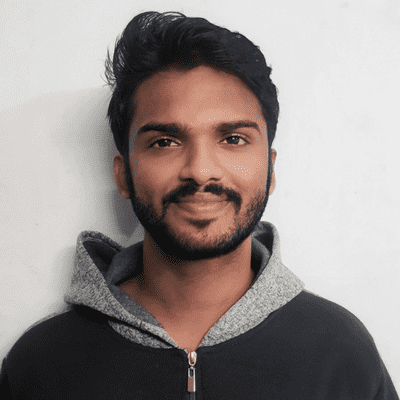Liyas is the creator of Hoppscotch - an open-source API development ecosystem used by more than 200k developers worldwide. Currently, Hoppscotch has more than 29k stars on GitHub and 450k+ Docker pulls.
In just 600 words, he shares :
- His motivation behind creating Hoppscotch
- How he tackles Imposter Syndrome
- Advice for people wanting to start an open-source project
and more …
enjoy
Thank you, Liyas
let’s get started:
What was the motivation behind developing Hoppscotch? What is the problem you’re trying to solve?
On 2019, August 22 - I was a product engineer at a very early-stage startup. I had to manually test 100+ API endpoints and integrate them to the UI. That was the first time I came to know about API testing tools. There were lots of them but none seemed to be easy for a total newbie like me.
Also, most of the existing tools were operating system based binary builds which required lots of CPU and RAM resources. So I made a web app that allows me to test API endpoints directly from the browser window itself - without switching back and forth between multiple apps. Also, web apps had cross-platform and cross-device support. I open-sourced it just like all the other projects I made.
It was a personal tool that I built for myself, but later became a side project and then a product.
Read the announcement story here
Since you’re developing something that operates on such a massive scale, do you ever get imposter syndrome? How do you deal with it?
Almost every single day.
I made the Hoppscotch project in Vue.js + Nuxt.js javascript frameworks. At those times, the Vue ecosystem was alien to me. Actually, Hoppscotch is my first ever Vue.js project. The very reason why I chose a new framework for a new project is because I wanted to learn that framework. And I used to learn all new things by making a project with it. This way, it always made me realize there’s always lots of stuff that I’m not aware of. So I accept the fact it’s okay to not know everything to build something awesome.
Learning is a process, a journey you make while building and breaking stuff.
What I cannot create, I do not understand.
— Richard Feynman
Sometimes maintaining an OSS project can get hectic with all the questions, issues, pull requests, and feature requests. How do you handle it?
To date, we’ve more than 130 contributors. Most of them are from different countries, with different skill sets and different perceptions on how to contribute to an open-source project.
There’s always this part where we can’t implement all the requested features nor fix all bugs at once. We take enough time to find out which all are the essential features that should be on our priority list. You can call it the Pareto principle or 80/20 rule. Everything except that will be in the backlog.
We conduct internal and public polls and accept feedback on what to implement next. The core team takes care of critical bugs and maintains our community channels. All together - the project moves forward.
Having a 100% remote and distributed team is quite difficult for many open source projects. Every teammate living in almost opposite time zones, it’s quite rare all of us being online at once. But this also helped us to respond to user’s queries quickly. For example: whenever an issue or a concern is raised by a user - the first one who saw the notification in our GitHub issues or Discord channel or Telegram group responds to it without waiting for the support team to get notified.
What are your future plans to grow Hoppscotch?
Even though the Hoppscotch project came out of a personal necessity, later it grew into a community-driven project. Made by the community - for the community.
This gives us a huge responsibility to build the best API development ecosystem for developers. This is only possible with enterprise-level features and out-of-the-box innovative things to make API development and consumption workflows easier. The most upcoming features consist of team collaboration, workspaces, and user profiles. But they’re still just the tip of what we’ve planned. Stay tuned.
What advice do you have for people wishing to start an open-source project?
Starting an open-source project or even contributing to an open-source project always has a philosophy of gratitude. Giving something back to the community.
Make sure you stay consistent in the roadmap - but that doesn’t essentially mean you should try to add all features requested by the community. Always have a vision and work towards it. Feel free to pivot your ways to approach the target and just make sure you don’t quit. Nowadays, your contributions are not just a portfolio of your skills, but also can be a future billion-dollar company or unicorn.
